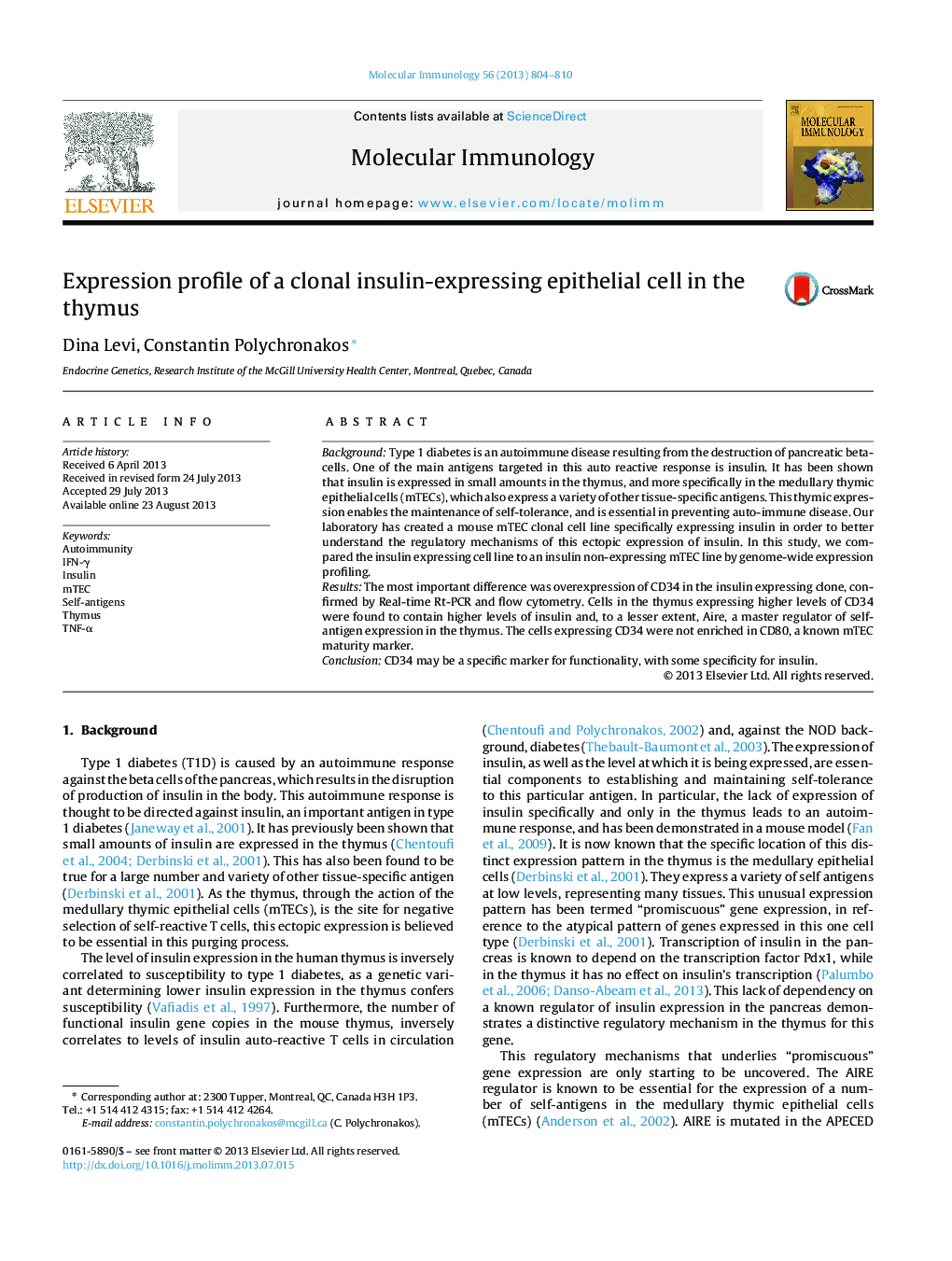| Article ID | Journal | Published Year | Pages | File Type |
|---|---|---|---|---|
| 5916983 | Molecular Immunology | 2013 | 7 Pages |
â¢Expression profiles of thymus epithelial lines expressing Ins2 or not were compared.â¢Numerous genes were differentially expressed, and some were tissue-specific.â¢CD34 was the most strongly overexpressed in the insulin-positive cell line.â¢CD34 may be a good surface marker for these specialized insulin-expressing cells.
BackgroundType 1 diabetes is an autoimmune disease resulting from the destruction of pancreatic beta-cells. One of the main antigens targeted in this auto reactive response is insulin. It has been shown that insulin is expressed in small amounts in the thymus, and more specifically in the medullary thymic epithelial cells (mTECs), which also express a variety of other tissue-specific antigens. This thymic expression enables the maintenance of self-tolerance, and is essential in preventing auto-immune disease. Our laboratory has created a mouse mTEC clonal cell line specifically expressing insulin in order to better understand the regulatory mechanisms of this ectopic expression of insulin. In this study, we compared the insulin expressing cell line to an insulin non-expressing mTEC line by genome-wide expression profiling.ResultsThe most important difference was overexpression of CD34 in the insulin expressing clone, confirmed by Real-time Rt-PCR and flow cytometry. Cells in the thymus expressing higher levels of CD34 were found to contain higher levels of insulin and, to a lesser extent, Aire, a master regulator of self-antigen expression in the thymus. The cells expressing CD34 were not enriched in CD80, a known mTEC maturity marker.ConclusionCD34 may be a specific marker for functionality, with some specificity for insulin.
